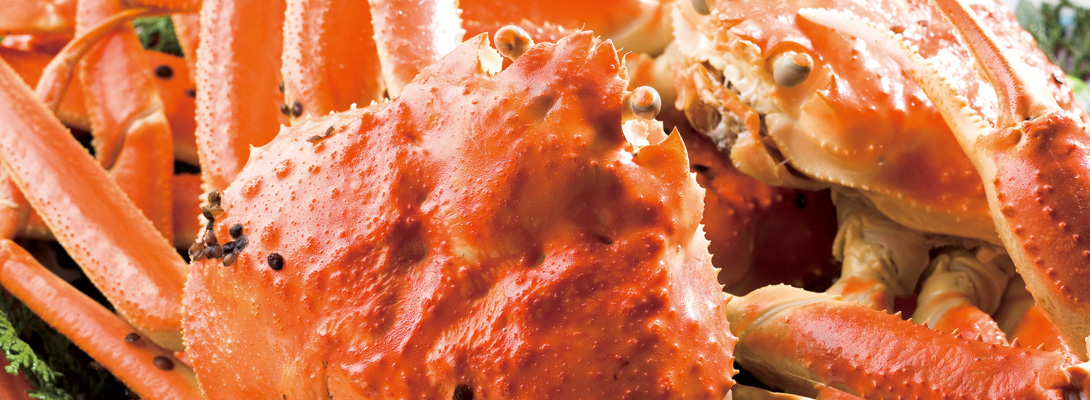

Echizen Oroshi Soba Noodles
Echizen oroshi soba is a traditional dish where grounded daikon radish, a local crop, is added on top of chewy soba noodles made from buckwheat flour that was grounded using a stone grinder.
【Season】 All year round, but it’s most delicious starting November which is the harvest time of buckwheat.

Sauce Katsu-Don Pork Cutlet Bowl
When one refers to katsu-don here in Fukui City, he/she is actually referring to katsu-don that is eaten with Worcestershire sauce. First, a tare sauce, which has a secret recipe with Worcestershire sauce as the base, is dressed on top of a bowl of rice. Finally, the same sauce is glazed on top of a fresh-out-of-the-fryer pork cutlet, which is then served on top of the rice. The pork cutlet is so tender one could cut it with chopsticks. The tenderness of the pork cutlet, the aroma of the sauce, the sweetness, the tang, the sourness… everything blends together perfectly for an experience that if one were to try it once, he/she will never forget.
【Season】 All year round

Echizen Gani Crab
Whether it is boiled or baked, Echizen crab is delectable. The taste of the juicy sweetness packed into the crab meat and the crab miso are addicting after one bite. Branded with a yellow tag as proof, Echizen crab is presented yearly at the emperor’s court. It is truly the king of winter cuisines of which Fukui City is proud.
【Season】 Female crab – Nov. 6 to end of Dec. Male crab – Nov 6. to March 20

Echizen Uni Sea Urchin
Known as one of Japan’s top three delicacies, it is prepared by pickling sea urchin caught off the coast of Echizen (Fukui City) in salt. In order to make 100 g of pickled sea urchin, one would need more than 100 sea urchins. The rich and delicate taste goes perfectly with Japanese sake, warm rice, etc.
【Season】 All year round

Fukui City’s Local Sake
Fukui City, blessed with delicious water and rice, has over 10 different breweries. Each brewery makes their own specialty sake, which have differing tastes and aromas. The sake not only goes well with Japanese cuisine, but a variety of cuisines as well.
【Season】 All year round; somewhere between winter and spring, each brewery begins to send out its newly brewed sake.

Mizuyokan: Red Bean Jelly
Nationally, mizuyokan has the image of a summery sweet, but eating cool mizuyokan in the winter is a unique food culture of Fukui City. Fukui’s mizuyokan is juicy and soft. The refined sweetness is a distinguishing quality of Fukui’s mizuyokan.
【Season】 November – March

Habutae Mochi Rice Cakes
It is a local sweet that was created on the fact that the production of the silk product, Habutae, once flourished in Fukui. Habutae mochi, slightly different from typical mochi, is smooth as silk, melts in one’s mouth, and has a refined sweetness.
【Season】 All year round
Fuku-Buku Kan: Fukui City Tourism and Local Products Center


Local specialty products within Fukui Prefecture are sold here. There is also a place to eat, Fuku-Buku Chaya, which provides local cuisines that use fresh ingredients grown locally. After enjoying Fukui cuisine, one can also purchase a wide variety of souvenirs.
- 【Address】
- 1-2-1 Chuo, Fukui City, 2nd Floor of Happiring
- 【Time】
- 10am to 10pm (Last orders are at 9:30pm)
- 【Holiday】
- In accordance to the entire building
- 【phone】
- 0776-20-2929









